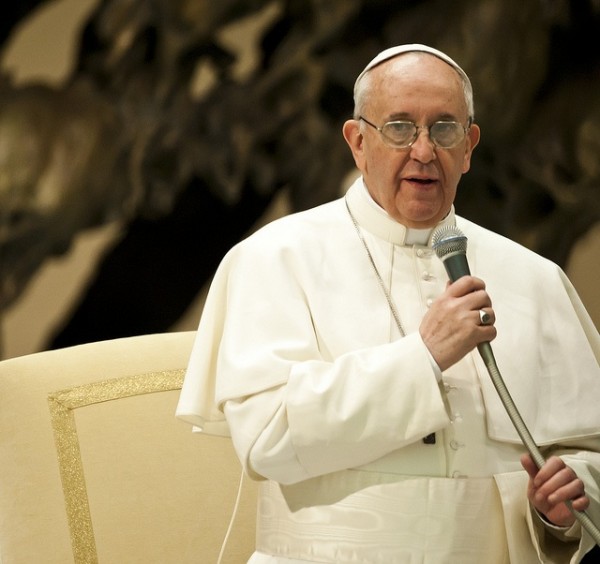
Image: Flickr – Mazur/catholicnews.org.uk
Almost immediately after Jorge Mario Bergoglio became Pope Francis I, the 266th Pope of the Catholic Church, questions regarding his human rights record were being asked. The niceties of his election to the papacy, that Francis is the first Pope to be Jesuit and to hail from the Americas and the Southern Hemisphere, were immediately overshadowed by inquiries concerning the level of involvement with and knowledge of the activities of the Argentine military dictatorship that reigned from 1976-1983 and waged the infamous “Dirty War” against the Argentine populace. Bergoglio publicly endorsed that regime during his time in Argentina, though opinion varies on the question of Bergoglio’s culpability.
Some contend that the then thirty-something Bergoglio was at most not courageous enough to publicly speak out against the junta. It appears evident that Bergoglio was not aligned with the military regime as some other religious leaders were. Questions of accomplice liability or of aiding and abetting the regime are harder to answer.
In 2010, Bergoglio was called as a witness regarding the crimes of that era in Argentine federal court for the third time. Despite perpetrators’ and victims’ engagement in various trials in Argentina and the enormous social gains to be had through these truth-seeking endeavors, Bergoglio twice invoked his legal right to refuse to appear. When he did appear in 2010, Bergoglio’s answers were characterized as evasive, but they did show that church officials were at least aware of the regime’s crimes early on.
Bergoglio’s involvement or complicity in the crimes of “Dirty War” era Argentina may never be fully uncovered. A 2011 article from the Guardian originally reported that Argentinean journalist Horacio Verbitsky claimed Bergoglio colluded with the Argentine Navy to hide political prisoners from the detection of human rights monitors. Following Bergoglio’s papal election, the paper retracted the statement.
These questions, though relevant to the preliminary assessment of the Catholic Church’s promotion of human rights in the era of Francis I, are probably not as foreboding as are his positions on social issues. Questioning Bergolgio’s involvement in the Dirty War is similar to the questions of those that arose of Joseph Aloisius Ratzinger’s Hitler Youth involvement when he was elected to the papacy. Much more pertinent is context in which Pope Benedict XVI stepped down when viewed along with the election of Francis I.
The Holy See, which represents the central government of the Catholic Church, enjoys permanent observer status at the U.N. Though the Vatican exists as a quasi-state, encompassing a territory and possessing legal personality under a treaty originally negotiated by Benito Mussolini, the Holy See refers to the Pope, the Curia, the cardinals, and the canon law of the Vatican. The Holy See had historically reigned over swaths of territory, but that ended in 1870 when the Risorgimento took Rome. In the modern era, the Catholic Church has, through its popes, remained a visible and influential voice regarding social issues, conflict and human rights.
The scandal of mass complicity in and the covering up of sexual abuse within the Catholic Church, though long known to be a problem seems to be emerging as a central reason why Benedict XVI stepped down, and the hard-line approach of Francis I appears to be a reactionary measure. His conservative positions on sexuality and related social issues may serve more to isolate victims than to promote acknowledgement of or responsibility from within the church’s ranks. If anything, the election of Francis I may signal the continuation of business as usual for the church rather than indicating any change that would bring the church to closer harmony with the human rights agenda.